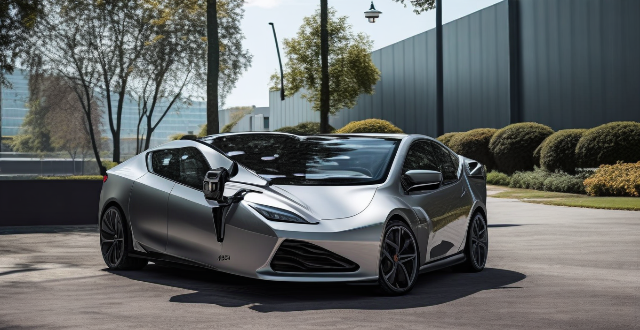The article discusses the average price range for electric and hybrid vehicles, which can vary based on several factors such as battery technology, range, brand and model, features, and location. Electric vehicles are powered solely by electricity and do not have a conventional internal combustion engine, while hybrid vehicles combine a conventional internal combustion engine with an electric motor to provide power. The article notes that the cost of electric vehicles is generally higher than that of traditional gasoline-powered cars, but it is expected to decrease as battery technology improves and becomes more affordable. On the other hand, the cost of hybrid vehicles is generally lower than that of electric vehicles but higher than that of traditional cars. The article also mentions that while these vehicles may have a higher upfront cost compared to traditional cars, they offer benefits such as reduced emissions and fuel savings that can make them a worthwhile investment in the long run.

Average Price Range for Electric and Hybrid Vehicles
Electric and hybrid vehicles are becoming increasingly popular as consumers look for more environmentally friendly transportation options. However, the prices of these vehicles can vary greatly depending on several factors such as brand, model, features, and location. In this article, we will explore the average price range for electric and hybrid vehicles.
Electric Vehicles (EVs)
Electric vehicles are powered solely by electricity and do not have a conventional internal combustion engine. The average price range for electric vehicles is generally higher than that of traditional gasoline-powered cars. Here are some factors that contribute to the cost:
Battery Technology
The battery is the most expensive component of an electric vehicle, and its cost has a significant impact on the overall price. As battery technology continues to improve and become more affordable, the price of electric vehicles is expected to decrease.
Range
The range of an electric vehicle refers to the distance it can travel on a single charge. Longer ranges typically require larger batteries, which can increase the cost of the vehicle. However, as battery technology improves, longer ranges are becoming more common and more affordable.
Brand and Model
Different brands and models of electric vehicles have different price points. Luxury brands and high-end models tend to be more expensive than their lower-end counterparts. Additionally, some manufacturers offer incentives or rebates that can help offset the cost of purchasing an electric vehicle.
Features
Like traditional cars, electric vehicles come with a variety of features that can affect their price. These may include advanced driver assistance systems, luxury interior materials, and high-performance components.
Location
The cost of electric vehicles can vary depending on where you live. For example, some states offer tax credits or other incentives to encourage the purchase of electric vehicles, which can help reduce their overall cost.
Hybrid Vehicles
Hybrid vehicles combine a conventional internal combustion engine with an electric motor to provide power. They are often seen as a bridge between traditional gasoline-powered cars and fully electric vehicles. The average price range for hybrid vehicles is generally lower than that of electric vehicles but higher than that of traditional cars. Here are some factors that contribute to the cost:
Fuel Efficiency
Hybrid vehicles are known for their fuel efficiency, which can save drivers money in the long run. However, this efficiency often comes at a higher upfront cost compared to traditional cars.
Brand and Model
Like electric vehicles, different brands and models of hybrid vehicles have different price points. Luxury brands and high-end models tend to be more expensive than their lower-end counterparts.
Features
Hybrid vehicles may come with additional features such as regenerative braking systems, which capture energy from the brakes and use it to recharge the battery. These features can add to the overall cost of the vehicle.
Maintenance Costs
While hybrid vehicles may have lower fuel costs, they may also have higher maintenance costs due to the complexity of their systems. This should be taken into consideration when determining the overall cost of ownership.
In conclusion, the average price range for electric and hybrid vehicles varies depending on several factors such as battery technology, range, brand and model, features, and location. While these vehicles may have a higher upfront cost compared to traditional cars, they offer benefits such as reduced emissions and fuel savings that can make them a worthwhile investment in the long run.